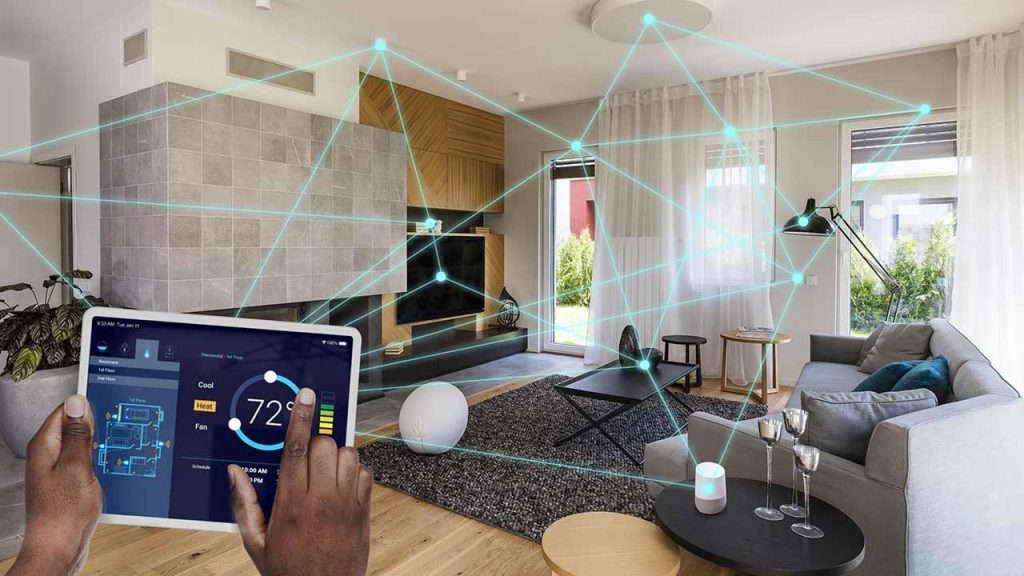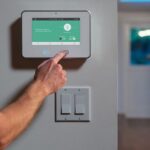
The term matter refers to the technology used to monitor and control physical
objects and processes in industrial, manufacturing, and other settings that creates
the best home automation. The matter is a smart home interoperability protocol
developed by the Connectivity Standards Alliance, an organization that brings
together the biggest names in the industry. Apple, Samsung, Amazon, Google, and
the Zigbee Alliance are among the companies involved. Thus, Matter aims to be an
interoperability protocol with standard data models that ensures the best home
automation across ecosystems.
With Matter, internet-connected devices from different manufacturers can
communicate easily and securely with each other, simplifying the smart home
ecosystem. Competing companies have collaborated to advance the smart home
and make it more consumer-friendly. It’s finally starting to become a reality that
Matter is more than just a buzzword and vendor promises.
With Matter, different devices and ecosystems will be able to play nicely together.
For their devices to be compatible with Amazon’s Alexa, Apple’s Siri, Google’s
Assistant, and other voice services, manufacturers must comply with the Matter
standard. To build a smart home, Matter theoretically lets you buy any device and
control it with the voice assistant or platform you prefer.
Stand Out Features of Matter
In matter automation, there are several key features to consider:
Security
A reliable, secure connection is the promise of this industry-unifying standard. It
ensures that devices work seamlessly together – today and tomorrow. By
connecting more objects, matter simplifies the development of manufacturers and
increases consumer compatibility. Sensors for home automation are used in Matter
is used to collect data about the physical properties and conditions of the objects
and processes under control. These Sensors for home automation can include
factors such as temperature, pressure, humidity, location, movement, and others
Reliability
Connectivity that is consistent and responsive in Matter. The Matter team is
committed to making smart home devices reliable, secure, and seamless to use.
Matter builds on Internet Protocol (IP) to enable communication between smart
home devices, mobile apps, and cloud services, and to define IP-based networking
technologies.
Interoperability
Multi-brand devices work natively together in Matter. The Matter will be fully
integrated with the Amazon, Apple, and Google ecosystems depending on what
they allow. Matter devices will work together with the ones you already connected
through the Google program in the Google Home app.
Remote Access
You will be able to alter settings quickly and easily if your plans change. The ability
to communicate changes to your home automation system remotely is one of the
most valuable features of the best home automation system since plans often
change while you’re away. The Matter provides high-speed and reliable remote
access to your devices. Remotely control your lights, thermostats, and other gear
from your laptop, smartphone, or tablet to monitor your home’s environment.
Expandability
Technology will continue to evolve, introducing new products to the market.
Eventually, you may want to add new rooms to your automation networks, such as
a recently finished basement or an addition off the back. If you want to install your
system with a minimal number of features and then later, when you have the
funds, add more features. For these reasons, it’s crucial that a home automation
system can be easily expanded both horizontally and vertically to accommodate
more rooms and extra goods. More expandable than one may imagine, matter can
link to numerous devices at once.
Energy Control
Energy conservation is one of the trendiest issues in the consumer media. Some
automation systems are better than others at automatically turning off electronics,
which can help save energy. Before making a purchase, make sure to look at a
system’s energy-saving features. Matter works efficiently and can save more energy
than ever.
The Zigbee Alliance provides Matter with a strong basis. It is a success that the
four most popular smart home platforms; Amazon Alexa, Apple HomeKit,
Google Home, and Samsung SmartThings—are all present at the same table. It is
optimistic to think that Matter will be adopted uniformly, but it has already
attracted a flurry of interest from a number of smart home brands.




